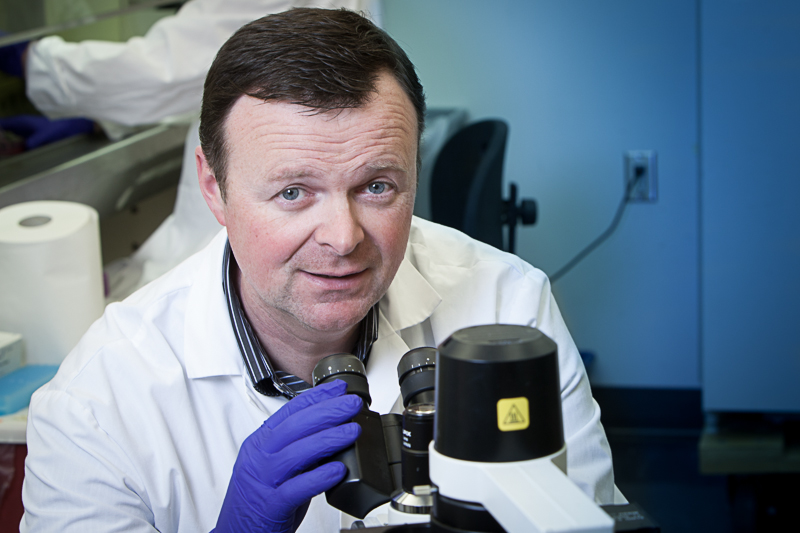Queen's Cancer Research Institute endeavours to improve cancer care
August 1, 2014
Share
This story, written by Alec Ross, has been condensed and edited from its original form, which appeared in Issue 5, Spring 2014 of (e)AFFECT magazine.
Most cancer patients in Kingston and the surrounding area receive treatment at the Cancer Centre of Southeastern Ontario, a shiny new facility attached to Kingston General Hospital that houses facilities for radiotherapy and chemotherapy, dietary counselling and other cancer support services.
 Dr. Andrew Craig
Dr. Andrew CraigWhat these patients may not know is that, steps away, is the Queen’s Cancer Research Institute (QCRI), a four-storey building full of physicians and scientists who, on the front lines and behind the scenes, are figuring out how cancer works and improving the quality of cancer care in Canada and around the world.
Queen’s established the QCRI in 2001 as a place where academics, practicing physicians, scientists, graduate students and postdoctoral fellows from across the cancer research spectrum could work in close proximity to, and learn from, each other.
The idea was that research creativity and productivity could flourish if those doing it could easily communicate with each other instead of being isolated in silos on different parts of campus. Today, the institute is a hive of activity comprised of three closely linked divisions.
 Dr. Chris Booth
Dr. Chris BoothThe Cancer Biology and Genetics division houses researchers who investigate the biological origins of cancer. Staff in Cancer Clinical Trials manage and participate in national and international trials of cancer drugs and treatments such as radiation and surgery. The Cancer Care and Epidemiology division is concerned with learning more about what causes cancer and identifying strategies to improve the quality of cancer care.
 Dr. Penny Bradbury
Dr. Penny BradburyTo learn more about the research that occurs at QCRI, visit (e)AFFECT online to read profiles of three mid-career researchers who are each making important contributions to cancer knowledge in Canada and around the world: Andrew Craig from Cancer Biology and Genetics, Penny Bradbury from the NCIC Clinical Trials Group and Chris Booth from Cancer Care and Epidemiology.